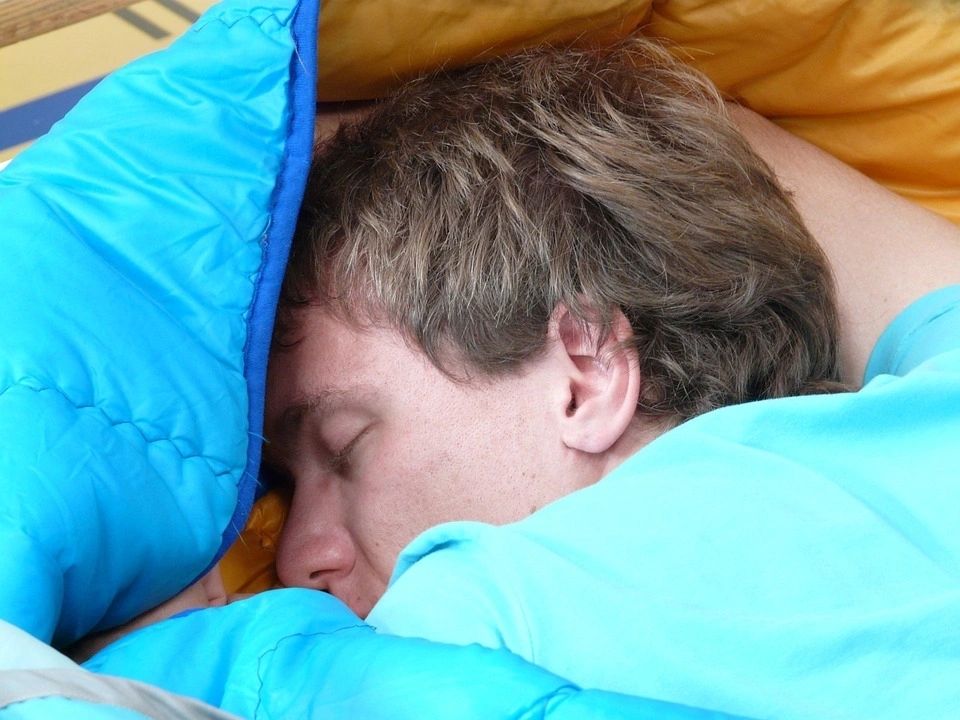
Sleep Apnea and Hearing Loss
Beyond snoring: a threat to health and hearing
My dad never slept well. Sleeping time turned into a fight for air and breath.
As a child, I was scared for him. Never able to get proper rest, he often fell asleep in the living room chair. Pretty soon he would snore loudly. Then, his breathing would stop…for 10,20,30 seconds and longer. I watched in a panic ─ when suddenly a thunderous snore would wake him up. This happened over and over during daytime naps as well as at night.
Today I know that dad suffered from obstructive sleep apnea. During sleep muscles in the throat and neck relax. Soft tissue that is no longer supported sags and obstructs airflow. The condition contributes to chronic daytime fatigue. It puts the body under stress and causes inflammation of the blood vessels, which increases the risk for heart disease and stroke.
Although skinny people can also have sleep apnea, many patients, including my dad, are overweight. Already at risk for heart disease, sleep apnea further aggravates existing threats like high pressure.
Now there is reason to believe that the hearing of the those with sleep apnea is also endangered. One study found that men who suffered Sudden Hearing Loss often had a history of sleep apnea. But what are the connections?
Ongoing research
The reasons why sleep apnea may lead contribute to hearing loss are still not well understood. But there are some theories that make a lot of sense. These involve complications related to blood flow to the cochlea ─ the inner ear hearing organ ─ and to blood oxygen levels. However, the hearing cells in the cochlea are very dependent on a continuous healthy blood and oxygen supply for survival and proper functioning.
It is believed that sleep apnea has a role in causing inflammation of the tiny blood vessels that irrigate the cochlea. This interferes with the normal functioning of the inner ear blood vessels, which in turn hinders adequate blood flow to the ear. Yet, less blood means less oxygen.
Then, every time the patient stops breathing, the oxygen levels in the blood drop, often significantly so. Together with impeded blood flow, recurring depressed blood oxygen levels further reinforce cochlear oxygen starvation.
When it comes to hearing loss, all frequencies seem to be affected. However, might the ongoing rumble of snoring itself make the lower frequency losses worse? So many questions that beg for answers!
What to do?
Dr. Andrew Weil tells us that “improper breathing is a common cause of ill health.” Sleep apnea illustrates this statement quite well. This is a chronic condition that should not be ignored or denied for all sorts of reasons.
Annoyance and family complaints regarding excessive snoring are often the major reasons why people might seek a medical opinion. Sleep studies can help diagnose the condition and determine its degree of severity.
Lifestyle changes involving diet, exercise and weight loss will certainly be discussed. Losing weight reduces the pressure on neck and throat structures, which by itself can improve breathing. Fitted mouth pieces that realign the jaw position during sleep may be recommended.
Continuous Positive Airway Pressure (CPAP) masks are the mainstay of treating sleep apnea. Although considered cumbersome by many patients, these devices have also undergone changes in design, fit and sound emission and deserve a try. A friend who uses a CPAP mask routinely tells me that he cannot imagine life without it anymore. He feels better rested and has energy to spare.
In the end, sleep apnea undermines quality of life in many ways. Nowadays, no child should watch in a panic, worrying whether a loved one will breathe again. Help is available. So, in the interest of health and hearing ─ go for it. Get evaluated!
(Dr. Weil quote: https://www.respiratorytherapyzone.com/quotes-about-breathing/)
****
For Hearing Safety presentations or Hearing and Health presentations, please see my website hearing-loss-talk.com
To learn about Ears and Hearing, see my book “What Did You Say? An Unexpected Journey into the World of Hearing Loss” – now in its second edition.